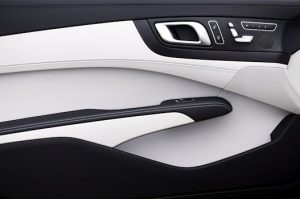Small Business Vehicles: What to Consider
Small business owners have a lot on their minds – from managing finances and inventory to keeping customers happy. With so much to juggle, it’s no surprise that choosing the right vehicle for their company can often be pushed to the backburner. However, the vehicle you choose for your small business can have a significant impact on your bottom line. Whether you’re in the market for a delivery van, a company car, or a fleet of vehicles, there are several key factors to consider. In this article, we’ll dive into the important considerations when it comes to small business vehicles, helping you make an informed decision that will benefit your company in the long run.
Budget
The first and most important factor to consider when choosing a small business vehicle is your budget. As a small business owner, you probably have a tight budget and need to make sure every penny counts. It’s crucial to determine how much you’re willing to spend on a vehicle and to stick to it. Keep in mind that the total cost of ownership goes far beyond the initial purchase price. You’ll need to consider fuel costs, maintenance and repair expenses, insurance, and any financing fees. Be realistic about what you can afford and don’t get swayed by fancy features or the latest models that may be out of your price range.
Purpose and Usage
Another essential consideration is the purpose of the vehicle and how it will be used within your business. Are you primarily using it for deliveries? Will it be for client meetings? Or perhaps for employee transportation? Different vehicles serve different purposes, and it’s crucial to choose one that meets your needs. For example, if you’re using the vehicle for deliveries, you’ll want to prioritize cargo space, while a vehicle for client meetings may need to be more luxurious and comfortable.
Size and Capacity
The size and capacity of the vehicle are also crucial factors. If you have a small business that doesn’t require much transportation, a smaller vehicle will likely suffice. However, if your business is growing, and you know you’ll need to transport bigger items or more people in the future, it may be more cost-effective to invest in a larger vehicle now. This will save you from having to constantly upgrade or purchase additional vehicles in the future.
Fuel Efficiency
Fuel costs can add up fast, especially for small businesses that rely on vehicles for their operations. Choosing a fuel-efficient vehicle can save you a significant amount of money in the long run. Look for vehicles with hybrid or electric options, or those with good gas mileage. While they may have a higher upfront cost, the savings in fuel expenses will make up for it over time.
Brand and Image
The brand and image you project can also play a significant role in your vehicle choice. Some businesses may want to convey a sense of luxury, and therefore opt for a high-end car, while others may prioritize functionality and stick with a more practical brand. Consider how the vehicle you choose will reflect on your brand and what message it will send to potential clients or customers.
Maintenance and Repairs
As a small business owner, the last thing you want is to constantly deal with costly maintenance and repair issues. When choosing a vehicle, research its reliability and read reviews from other small business owners who have experience with it. Opt for brands and models with a good track record of durability and minimal maintenance issues. It’s also a good idea to invest in a maintenance plan or warranty to cover any unexpected repairs.
Safety Features
It’s crucial to prioritize the safety of your employees and customers, especially when it comes to vehicles. Look for vehicles with advanced safety features such as collision avoidance systems, blind-spot monitoring, and lane departure warnings. While these features may add to the cost of the vehicle, they are well worth it for the peace of mind and the safety of your business.
Conclusion
Choosing the right vehicle for your small business may seem like a daunting task, but by considering these key factors, you can make an informed decision that will benefit your business in the long run. Remember to stick to your budget, consider the purpose and usage, and prioritize factors such as size, fuel efficiency, brand and image, maintenance, and safety features. With these considerations in mind, you’ll be on your way to finding the perfect vehicle for your small business.






